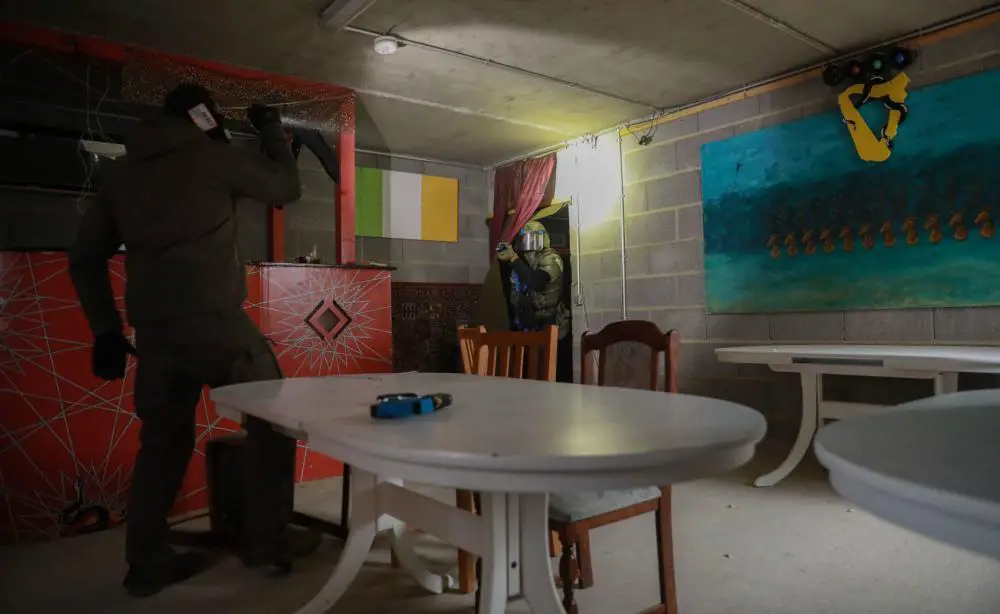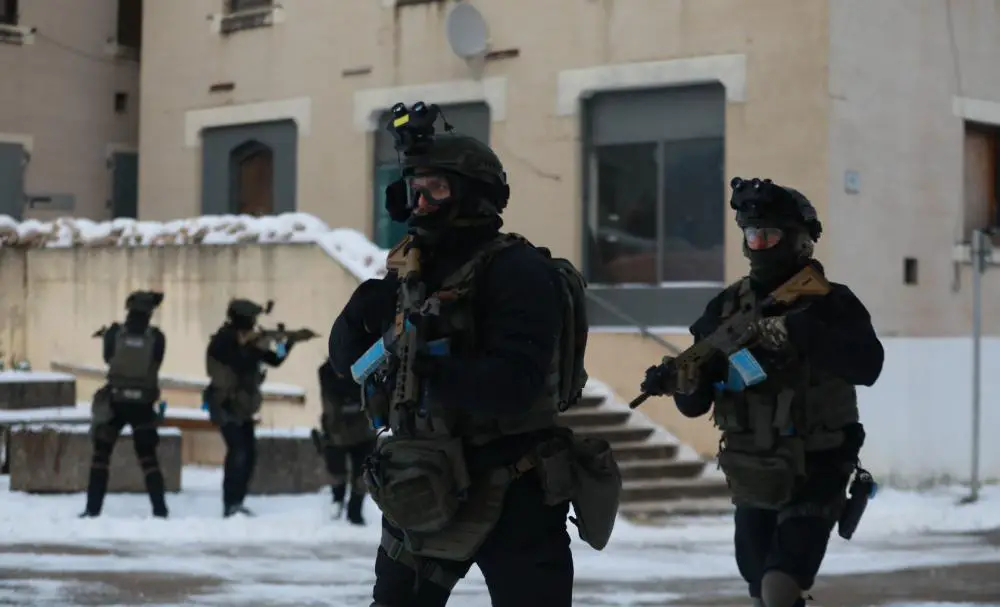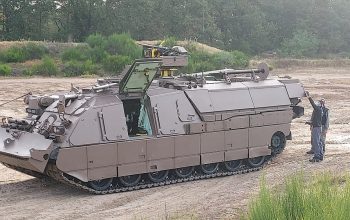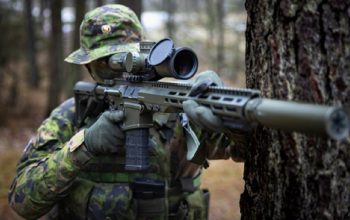The U.S. Army 7th Army Training Command – Joint Multinational Readiness Center (JMRC) hosted annual German Spezialeinsatzkommandos (SEK) training December 19-23. The SEK are police tactical units from the 16 German State Police forces. Members of this group are required to have formal police training and at least 3 years of work-related experience before they apply to be a part of an SEK unit. The SEK requires operatives to be physically and mentally strong, logical, and a willing team member. The initial training lasts five to eight months to cover a wide range of skills. The SEK will then have annual follow-up training intended to keep SEK members capable of handling themselves during high-stress and dangerous situations.
“This is a final test of all the tactics we have taught them, and Hohenfels provides options to train that we would never have anywhere else, It’s always nice to be here, and we really appreciate that we get this opportunity by the U.S.” said the Chief Instructor of the exercise.

Spezialeinsatzkommando (SEK, “Special Task Force”) are police tactical units of each of the 16 German State Police forces. Along with the Mobile Einsatzkommando (MEK), Personenschutzkommando[1] (bodyguards), and the Verhandlungsgruppe (negotiation teams in some states), they are part of the police Spezialeinheiten of each state. Hostage sieges, kidnappings, and raids also belong to their missions as well as other scenarios like personal security details for VIPs or witnesses. Since the 1970s, each SEK has handled several thousand deployments. The front-runner is the SEK of the Berlin Police with up to 500 deployments a year, an average of 1.4 deployments a day.
JMRC provides an ideal environment for SEK training because it gives trainees a real-world, urban setting without having to disturb German citizens. Five trainers and ten trainees from Northern Bavaria came together to train on hostage rescue, raid control, and operations during terroristic attacks. The training area contains buildings trainees with multiple points of access. Some rooms may be empty while others have simulated threats, whether it be a cardboard figure or a trainer acting as an assailant a trainee will have to subdue. They also learn to coordinate team movements in an open, outside area as part of a mock raid or an artificial terrorist attack. Both SEK trainees and trainers appreciate United States Army Garrison Bavaria’s cooperation with their training.














